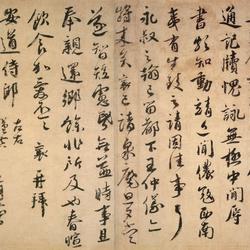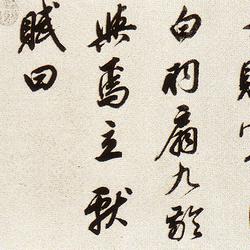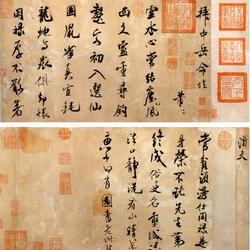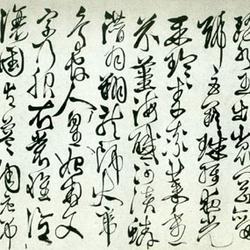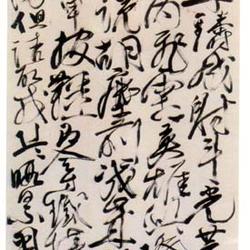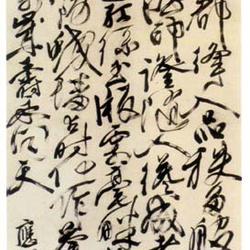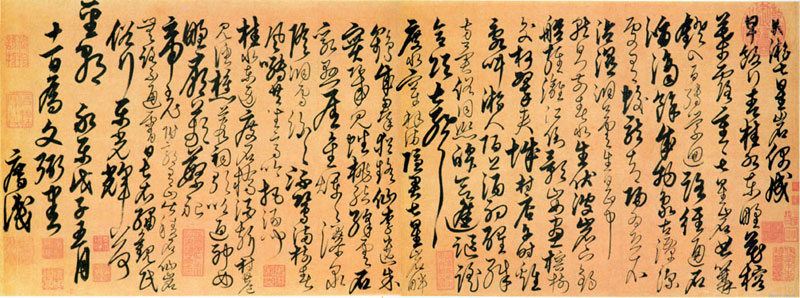
Xie Jin's "Poem of Traveling to Qixingyan", paper, cursive script, length 23.2 cm, width 61.3 cm, collected by the Palace Museum, Beijing
The work has been collected by Zhu Zhichi, An Qi, Qianlong Yufu, Gu Song, Pan Hou, Wu Lifu, Zhang Heng, etc., and has a total of 16 seals from various collectors.
The poems can be found in Volume 5 of Xie Jin's "Wenyi Collection", "Inscribed on Lingui Qixingyan". There are three poems in total, which are increased to four here. Qixingyan is located in Qixing Mountain in the east of Guilin, Guangxi. It has deep caves, condensed stalactites, and is magnificent and colorful. It has been a tourist attraction since the Sui and Tang Dynasties. Xie Jin began to serve as an official in Guangxi and Jiaozhi in the fifth year of Yongle. It is natural that he visited Qixingyan and composed a poem.
This book was written in the sixth year of Yongle (1408), when Jie Jin was 40 years old. His calligraphy skills have reached a state of maturity, with unrestrained pen and ink, arrogant and rigorous intentions. (Writer: Hua Ning)
Explanation:
Visit Qixingyan
After breakfast, we walked to the east of Chungui River, where the wild flowers and banyan leaves were heavy with dew. The lights of Qixing Cave are full of lights, and the paths are full of twists and turns. The drops on the right are painted into objects, and there is a mosquito dragon deep in Guze. But he was afraid that his clothes would get wet, and the clouds at the entrance of the cave were deep and the sun was shining. The spring water is growing in front of the door, and fishing boats are light under Fubo Rock. The mountains reflecting the Lijiang River are picturesque, and the banyan trees intersect with the flat city. The chickens crow in the village shop at noon, and the tourists wake up from the wine on the street. Different places, different customs, the same Xihao, want to sing songs and sing praises together. Crossing the water and walking through the forest to visit Yinjun, there are flocks of cranes by the Qixing Rock. I still doubt that the immortal plum leaves are not real, and I often see crimson clouds on the flat peaches. The stone milk cliffs are rotten with gold, and the waterfalls and springs are filled with holes and snow. Orioles fill the trees and sing in the spring breeze. We sit together and sing and drink wine. There is a stone bridge on the east side of Guishui River, and fishermen and woodcutters can be seen in the lanes of Jiuqi Village. Songs and songs were played in Jia Temple to welcome the goddess, and Emperor Yao was frequently worshiped in wild temples. There are mountains in Guo that are full of rocks, and there is no path to the immortal rock that leads to the sky. Richangyi Township observes folk customs and enjoys the glorious Lotus Holy Festival. On the 11th day of the fifth month of the fifth month of Yongle Wuzi, Wenbi wrote a book called Shishi

